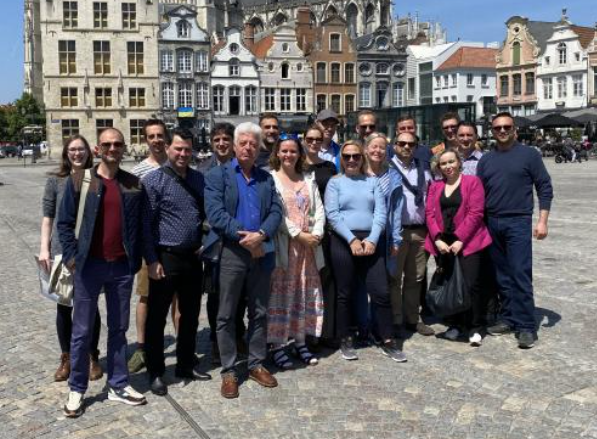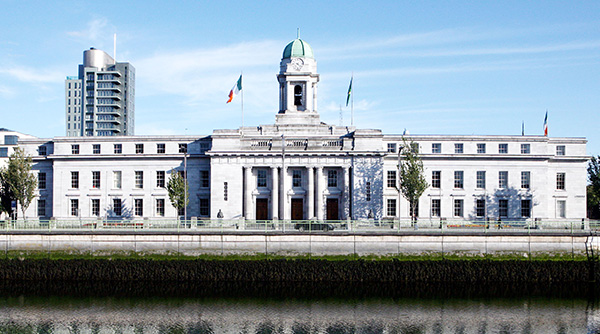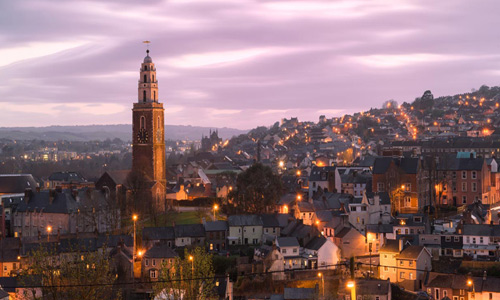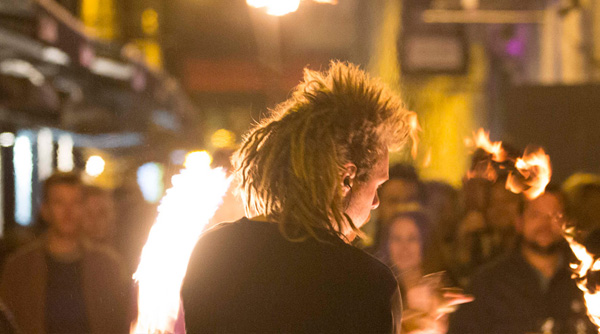Zero Carbon Infrastructure
Cork City Council has joined seven European partners in an exciting new project to help reach our target of being a carbon-neutral city by 2030.
Background
Through the European Green deal, the EU set ambitious targets to decarbonise transport. The European Environmental Agency (EEA) estimates that road traffic constitutes the highest proportion of overall transport emissions. In 2019, it emitted 72% of all domestic and international transport Green House Gases (GHGs), and 23% of the EU’s transport GHG emissions come from urban areas. In Cork city, petrol and diesel vehicles are responsible for 29% of our GHG emissions.
What is the ZCI Project?
In March 2023, the Zero Carbon Infrastructure (ZCI) project began, to help reach our targets for reducing these emissions. Financed by the Interreg Europe programme, this four-year project sets an ambitious goal to support eight cities and regions across Europe in their efforts to develop green transport and zero-carbon infrastructure for their territories. To achieve that goal, the partners will cooperate, identify and test practical solutions to overcome the challenges we are facing. Led by the County administrative board of Kronoberg (Sweden) and with support from the Erasmus Centre for Urban, Port and Transport Economics (The Netherlands), Cork City Council will explore solutions for:
- Private electric-vehicles charging infrastructure;
- Sustainable urban logistics;
- The business model of sustainable urban mobility – incentives that build customer demand for decarbonised transport solutions;
- Transition to zero-carbon mobility – public acceptance and communication.
Project activities will support the partners to:
- Identify and share good practices to address the key problems;
- Build capacity through training and knowledge-transfer;
- Improve relevant policy instruments to provide the necessary infrastructure and create market confidence.
The ZCI project has a total budget of € 2,085,629, with €1,650,049 provided by the European Regional Development Fund (ERDF).
Partners
The consortium consists of eight project partners and one advisory partner from:
- County administrative board of Kronoberg, Sweden - Lead Partner
- Kainuu Regional Council, Finland
- Business support centre Ltd, Kranj, Slovenia
- Burgas Municipality, Bulgaria
- Navarra Government – General Directorate on Industry, Energy and Strategic Projects, Spain
- Cork City Council, Ireland
- City of Mechelen, Belgium
- City of Parma, Italy
- Erasmus Centre for Urban, Port and Transport Economics BV, Netherlands (advisory partner)
For more information about the objectives, activities and expected results you can visit the project website at: Zero Carbon Infrastructure website
Project Meeting 1: Växjö, Sweden
Växjö, Sweden (March 2023)
In March 2023 (16–17) Växjö hosted the 1st project meeting. Project partners had the opportunity to meet and learn more about each other and establish connections, which will support the project work in the years to come.

During the two days, partners discussed overall project implementation and expected results, upcoming urgent tasks, planning and discussion of activities for Semesters 1 and 2. Discussion related to partners’ policy improvements were held, as well as study visit to city’s EV charging infrastructure.
Masterclass #1: Mechelen, Belgium
Mechelen, Belgium (May/June 2023)
On May 31 and June 1, 2023, the first ZCI Masterclass, held in Mechelen, Belgium, focused on Charging Infrastructure. Project partners presented the current state of charging infrastructure in their cities and problems and challenges facing its development. Partners shared their plans for development of zero-carbon infrastructure until 2030, as well as good examples of already implemented projects, e.g.:
- Electric buses charging station and 1 MW PV installation of Burgas Bus (Burgas, Bulgaria);
- Multi-storey car park – a combination with a photovoltaic plant, different charging types and capacities, “smart” charging (Mechelen, Belgium).

Partners visited different charging points in parking lots and discussed the most common problems city of Mechelen faces in their daily operation and maintenance. The experts went to the newly built multi-storey car park with a smart control system, including the production of electrical energy from a photovoltaic plant and an automated organization for charging vehicles with different types of batteries and charging methods.
Masterclass #2: Cork City
Cork City, Ireland (October 2023)
The second ZCI Masterclass (MC) was hosted here in Cork in October. The main purpose of the MC was to help partners to define their Learning Needs. The theme was Sustainable Urban with a focus on three main subjects:
- Mobility Hubs
- Local sustainable delivery initiatives
- Cargo-bikes

It was an interactive event with participation by all partners and stakeholders. The MC also included a Study Visit to the Douglas Street Flower Studio, where owner Justine Looney told the group about her sustainable journey for the business.
Notes
Notes:
As one of the EU’s 100 Mission Cities, Cork is aiming to be carbon neutral by 2030 (Cork selected by European Commission to lead on climate action - Cork City Council).
The European Green Deal aims to make Europe the first climate-neutral continent in the world by 2050 (A European Green Deal (europa.eu) and Delivering the European Green Deal (europa.eu)).
The Environmental Protection Agency (EPA) records that between 1990 and 2021 Green House Gas (GHG) emissions from transport in Ireland rose from 9.3% to 17.7% nationally. They attribute the rise to our economic prosperity, an increase in population, higher road-freight transport, and a high reliance on private car travel. ( Transport | Environmental Protection Agency (epa.ie)) EU research shows that 76% of Irish people rely on a car as their main mode of transport, compared with the EU average of 47%.
Cork City Council is leading the way towards a cleaner environment. In 2020, Cork City was the first local authority in Ireland to convert a significant portion of its vehicle fleet to electric. (Electric Vehicle Fleet - Cork City Council). The City Council is currently working on a strategy for the roll-out of EV-charging points across the city. This strategy will greatly benefit from the Council’s participation in the ZCI project.



